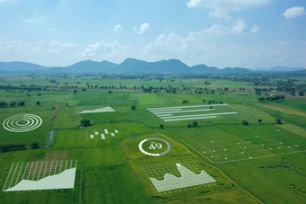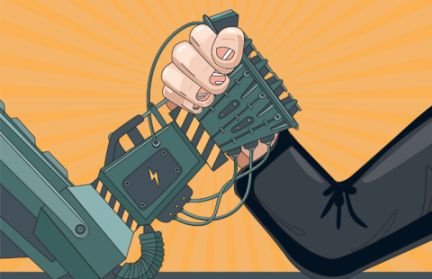
AI
AI (artificial intelligence) is something that needs no explanation. It is a way to describe a machine that has been programmed to independently think like a human does, or at the very least, stimulate human thinking. AI can (just like a human) learn from past mistakes and change things so that it does not make that same mistake again. It can perform human-like tasks, such as evaluation of a situation and adapting to new inputs/environments. AI technology is important because it enables both basic and superior human capabilities – understanding, reasoning, planning, communication, and perception – to be adopted by software efficiently and at a low cost.
Demonstrations with AI have proven that AI has beaten people in games, such as a multitude of videogames and even chess, against a grandmaster! In 1997, an AI called ‘Deep Blue’ emerged victorious in a chess match against THE Garry Kasparov, a highly renowned chess grandmaster and a former world chess champion for a record 255 months. This victory alone is a testament to AI’s ‘superior’ decision-making and its computational thinking.
The potential for AI is limitless. Right now, AI drives down the time taken to perform a task whilst also operating 24/7 without any downtime. This spells nothing but efficiency, both in costs and the (amount of) work done. As AI can work practically all year round with minimal ‘breaks’ (servicing) and are extremely precise and accurate, they allow the organisation to save costs. This is because human workers need breaks, and can be inconsistent with their work, sometimes leading to faults/errors meaning that the product or time is wasted, something precious to businesses. And aforementioned, AI can work continuously and accurately, therefore giving way to significantly less time, money and resources wasted, something significant in agriculture.
However, as appealing as the advantages may be, we have to shed light on the other side of the coin. That being, of course, the ‘reputation and portrayal’ of AI. More specifically, the general anxiety about machine intelligence, the fear of mass unemployment (creating meagre retention rates), concerns about putting the power of AI into the wrong people's hands (public danger and violence) and the substantial fear that AI will overtake humans soon enough (Not in the Skynet/Terminator-esque way, though). These factors have all made potential investors, developers, and clients steer clear of the concept entirely.
There are already some ‘worries’ involving AI, such as the US (and other) military/militaries utilising AI to man drones, warships and predict outcomes and events.

